According to the World Wildlife Foundation, an area of up to 300 football fields are cleared every hour just to produce palm oil.
Palm oil production is having a detrimental and devastating impact on the environment, sending several species of animals on the verge of extinction, contributing to climate change, world hunger, polluting our air, and much more.
In writing this article, I hope to make you aware of what palm oil is and its terrifying impact on our world. I hope that you gain from this article as to make the best choice in avoiding palm oil as a smart and compassionate consumer.
Palm oil can be found in more than 50% of items in grocery stores. Palm oil and it’s by-products can be found in a large listing of goods such things as toothpaste, shampoo, soaps, cosmetics, biscuits,cereals, ice cream, noodles, chips, cookies, crackers,bread, batters, chocolate, laundry detergents, and even fuel.
Palm oil has a longer shelf life than most other oils, making it an attractive product for food markets and its producers.
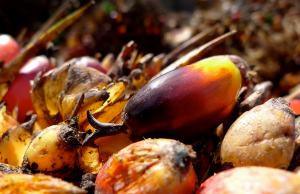
What is Palm Oil?
Palm oil is the oil extracted from the pulp of the palm fruit that grows on oil palm trees.
Palm plants are not to be confused with coconut palm trees in that palm plants are around seven feet tall with green soft, thick leaves and round fruit.
The palm fruit bears both palm oil and kernel palm oil. The pulp of the palm fruit produces palm oil while the palm fruit seeds produce kernel palm oil. Palm oil is typically used in food while kernel palm oil is typically used in cosmetics.
There are two primary species of palm oil palm tree, Elaeis guineensis and Elaeis oleifera. Elaeis guineensis is native to West Africa, while Elaeis oleifera is native to Central and South America. However, both species of oil palm trees are grown in tropical areas such as West Africa, Central and South America, Australia, and in Southeast Asia.
Speaking of Southeast Asia, Indonesia and Malaysia alone account for over 90% of the world’s palm oil production. As a result, palm oil plantations in Indonesia and Malaysia are propelling deforestation at an alarming rate.
How Palm Oil Is Manufactured Globally
Palm oil is grown in oil palm plantations found in tropical countries such as Indonesia and Malaysia. Acquiring land there is simple and cheap.
Palm oil plantations produces large vats of palm oil which are sold to traders.
From there, traders sell them rather inexpensively, legally or illegally, to huge corporations from around the world that can make products with it. Then, the products are exported to such countries such as the United States, Canada, England, Australia, and more thus ending up on our supermarket shelves and into our homes.
Effects of Palm Oil
The effects of palm oil are unbelievable. The effects include the destruction of tropical rainforests and peat lands, magnifying global climate change, the killing and dislocation of animals, raising the scarcity of food of the world, pollution, and much more.

How Palm Oil Impacts Animals
It breaks my heart to inform you that the effects of palm oil production animals are catastrophic.
During the deforestation of palm oil production, over 300, 000 animals are either injured, displaced, or killed. The production makes way for animal poachers and wildlife smugglers to come by and sell them as pets, use them for medicinal reasons, sell them to zoos and other tourist parks, or kill them for their body parts.
Much of the wildlife such as orangutans have been found dead by machete attacks, guns, and other weapons. Poachers have no difficulty in killing mother orangutans and snatching the babies from them to keep or sell as pets or to send off to zoos and tourist parks all around the world. Poachers like to creep through road networks that are built for plantation workers and equipment and wait for animals to come by.
This crisis is driving various endangered animals into extinction. These endangered animals include: the Sumatran tigers, Proboscis monkeys, Clouded Leopards, Bearded Pigs, Pygmy Elephants, Sun Bears, and Sumatran Rhinoceros and even certain animal species that have yet to be discovered.
In two decades alone, over 50,000 orangutans have died from deforestation. These animals end up dislocated and into villages where they are kept as pets, sold, or killed.
If nothing is done about this, if things are to continue, we could very well be seeing the extinction of species such as the orangutans within the next 5-10 years and the Sumatran tigers less than 3 years.
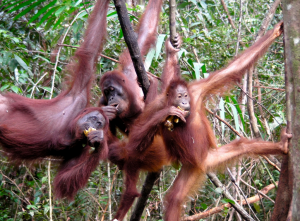
How Palm Oil Impacts People
The palm oil industry has such an overwhelming effect on the people.
What the palm industry does is it promotes plantation as a way to bring development and opportunity to the poor regions and since the government’s main objective is in its country’s economy, the government allows corporations to own land and to seize land from the native people.
This systematic injustice means that the native people that depended on their land for housing and/or work, get kicked out of their homes and jobs, often violently, to make way for development. This leaves the indigenous people homeless and with no choice but to become an oil palm plantation worker just to support themselves and their families.
Think of how it would feel if you were at home with your family and several men were to just kick you out forcefully from your home or job. It’s just unbelievable.
The palm oil industry has also been known to violate many human rights such as child slave labor. Children are made to work through extreme conditions such as heat exhaustion and injury such as cuts and bruises, for little to no pay at all.
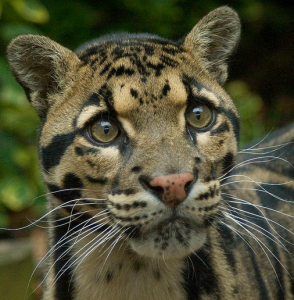
How Palm Oil Affects The Environment
It has been said that 98% of Indonesian forests may disappear by 2020.
The vast, rich rainforests are being destroyed at such an alarming rate. Palm oil deforestation is contributing greatly to global warming and climate change. With the burning of trees, green house gasses such as methane and cardon dioxide are vastly dumped into the atmosphere.
Indonesia has become the third highest greenhouse gas emitter in the world behind the United States and China.
A lot of people don’t know this but climate change is one of the primary reasons for animal extinction. It’s very heartbreaking as tons of smoke is emitted into the air with no regard to animal, human, or environment health.
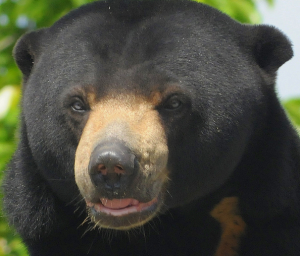
Sustainable Palm Oil?
It’s been long debated whether or not palm oil can be sustainable. Considering the exhausting of natural resources and the effects of ecological and economical damage, palm oil is by no means sustainable.
The palm oil industry has what they call “certified sustainable”, “organic”, or Roundtable for Sustainable Palm Oil (RSPO) palm oil but it’s really propaganda meant to confuse the consumer into buying palm oil.
Several campaign groups such as Survival International, Greenpeace, and Friends of the Earth (FOE) agree that palm oil is unsustainable and that buying sustainable palm oil is not possible because it is impossible to determine where the palm oil came from and whether or not it caused deforestation.
Large vats of palm oil are shipped from legal and illegal sources so buying palm oil from an illegal source is unethical. Again, it is impossible to determine where palm oil came from.
Names for Palm Oil
- Palm oil kernel
- “Palmitate” or “Palmate”
- Elaeis gunieensis
- Hydrated Palm Gylcerides Hexadecanoic
- Palmitic Acid
Most Likely to be Palm Oil
- Vegetable oil (if product contains saturated fats, it’s most likely palm oil)
- Anything containing “stearate, stearyl”
- Anything containing the words “cetyl, cetearyl”
- Sodium Lauryl Sulphate (SLS)
- Sodium Laureth Sulphate
- Sodium Dodecyl Sulphate
- (SDS or NaDS) Sodium
- Calcium Stearoyl Lactylate Steareth -2
- Steareth -20 Emulsifier 422, 430-36, 465-67, 470-8, 481-483
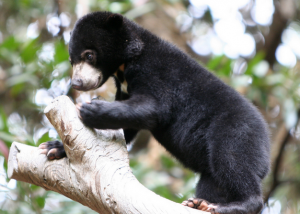
What You Can Do
To put and end to palm oil production, you can write letters to corporations, manufacturers, and governments to put pressure on them. Furthermore, you can stay informed on the latest palm oil news and developments. You can join campaigns and groups that serve to put and end to palm oil production.
The best way to start is by giving up palm oil completely and educating yourself on the household products that contain it.
There is no need for palm oil. There is no need for the exploitation and insurmountable destruction caused by the palm oil industry. Stop creating the demand for palm oil.
Become educated. Stop using palm oil. Educate others about this.
A good way to educate others is by simply sharing this article with all your friends and family. The animals are counting on you, the people are counting on you, and the vast, lush rainforests as well are counting on you.
Together we can make a difference!
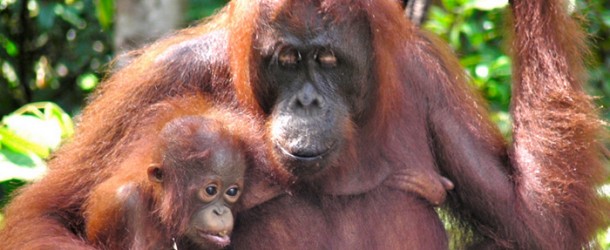
I love and respect our planet earth and all the creatures living in it.